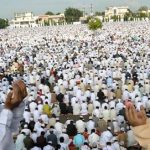Consultation explores relationship between interreligious dialogue, liberation

An interreligious consultation on ‘Interreligious Dialogue and Liberation’ jointly organized by the World Council of Churches and the Council for World Mission, Singapore explored the promise and possibilities inherent in integrating liberationist concerns to interreligious dialogue. Affirming that interreligious dialogue in the present global context is critical and constructive engagement with existential questions concerning the flourishing of all life, the consultation which took place in Siam Reap, Cambodia reflected on the theme of liberation from Buddhist, Christian, Confucian, Hindu, Jewish, Maori and Muslim perspectives.
Explaining the rationale behind the consultation, Rev. Dr Peniel Rajkumar, WCC programme coordinator for Interreligious Dialogue and Cooperation, said: “The aim of the consultation was to fruitfully interlink two salient strands of the times, namely the increasing reflections on liberation within various religious traditions, and the increased global efforts to integrate faith perspectives to issues related to the theme of liberation.”
He added: “In the light of these developments where we have witnessed the articulation of Hindu, Christian, Muslim and Jewish theologies of liberation on the one hand, and the increased invocation of the language of faith by secular actors like the United Nations on the other hand, it is important that these strands are brought together for conversation and collaboration. The fact that we had leading interreligious practitioners who are also passionate about justice and peace around the table in Siam Reap, gives us cause for a ‘humble confidence’ that a new world of justice and peace is possible when people of different faith orientations are willing to think and act together.”
Reflecting on the consultation, Dr Sudipta Singh, mission secretary, Research and Capacity Development at the Council for World Mission, said that the question of interfaith dialogue and liberation is integrally related to questions of imperialism. “There can be no denying that the question of inter-faith dialogue is rooted in the question of imperialism and empire,” Singh said. “As part of its missional commitment, the Council for World Mission firmly believes that religious experience is not the monopoly of any one community but that it is the common resource of the world and looks to hearing the voice of God amidst difference while offering our own spiritual experiences as a gift to the wider community.”
Courtesy : https://www.oikoumene.org









